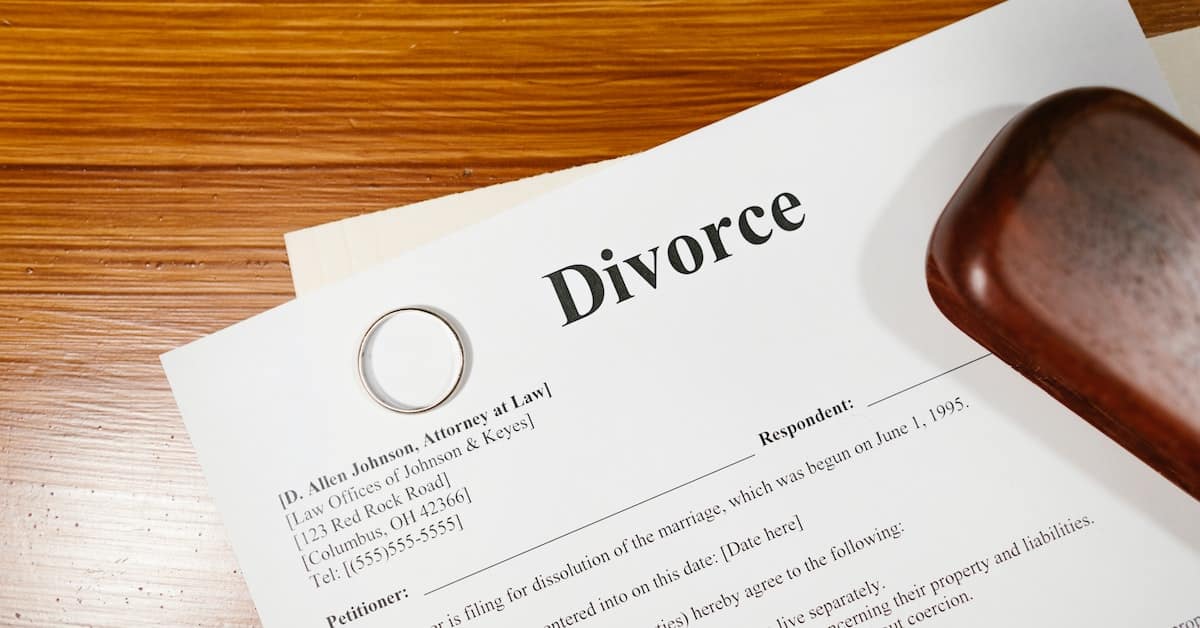Getting divorced is one of the most stressful and difficult life events that anyone can go through. At the same time, there's a good chance that you have other obligations and commitments that get in the way of your ability to move a divorce case forward. If this describes your situation, you're likely wondering: how long can a divorce be put on hold in Texas?
In short, there isn't any established Texas law about how long you can pause the process of divorce. However, waiting too long to take steps during your case can result in your case being dismissed.
How long it takes for the court to dismiss your case will depend on the county. That being said, they will inevitably notice that there hasn't been recent activity in your case. Courts will then put your case on a dismissal docket in order to help clear up their list of upcoming cases.
If you're interested in pausing your divorce, stick with us while we look at everything you need to know.
The first official step in a Texas divorce is the filing of the Original Divorce Petition. This is the document that begins divorce proceedings and outlines essential information, including:
Only one party has to file the divorce petition to begin the divorce process. The person who files the paperwork is referred to as the Petitioner, while the person that receives the document is referred to as the Respondent.

The divorce petition must be served to the Respondent in specific ways except in very special circumstances. The documents that a Respondent will receive can include:
In some divorces, both parties are in agreement about the divorce. In these instances, each spouse can sign a Waiver of Service form in front of a notary and return it to the court. Through filing this paperwork, the Respondent is waiving their right to be served papers.
If you are filing for divorce, it’s essential to understand that you can’t serve the divorce papers to the Respondent yourself. Under Texas law, the Respondent is considered to be served in the following instances:
Once the Respondent has been served, they then have a certain timeframe in which they have the opportunity to answer the divorce petition. An answer is a legal form that the respondent files in order to protect their right to participate in the divorce process and have a say in the divorce.
When you are served divorce papers, you have the right to file an answer. If you choose not to file an answer, though, your spouse can get a default judgment after the case moves forward without you. In this situation, you won’t have any say in what happens to your assets and debts and potential issues that involve your children.

You will have the chance to file a counter-petition if the divorce is contested. This gives you the opportunity to inform the judge as to what outcome you would like from the divorce, as opposed to what was stated in the divorce paperwork filed by your spouse.
It’s also a good idea to talk to a lawyer if you are served with divorce papers. They can give you advice and help you understand your options.
You don’t necessarily have to hire a lawyer to handle your whole case. You can also choose to hire a lawyer only to review your forms or give you advice. There are also legal clinics where you might be able to talk to a lawyer for free.
Are you wondering whether you can get away without seeking any legal counsel? Learn about getting divorced in Texas without a lawyer here.
The deadline for filing an answer is a little bit complicated. Basically, you have to file your answer by “10 am on the Monday after 20 days have gone by since you were served your papers.”
In order to find your deadline, follow these steps:
There are three options when it comes to how you can respond. These are:
You can file a waiver of service if you don’t want to be formally served. This means that your spouse doesn’t have to go through the process of serving you. This form only waives you of your rights to be served and doesn’t waive any of your rights to be involved in the proceedings.
It’s a good idea to talk to an attorney about whether or not you should file a waiver of service in your particular circumstance.
A divorce petition does not technically expire in Texas. That being said, there are specific time frames and guidelines that have to be adhered to in a Texas divorce.

If there isn’t any forward movement in a divorce case after a certain period of time, a judge can process it as a dismissal for want of prosecution (DWOP). Even though the divorce petition doesn’t legally expire, a case being filed as a DWOP does effectively mean that it has expired.
A divorce case can also be dismissed by a judge if you missed a trial or hearing that you have notice about.
If your divorce case has been filed as a DWOP, it means that you have to start the entire process over again from step one, including filing a divorce petition.
You will receive an email or a letter from the clerk before your case is dismissed for want of prosecution. This message will let you know that your case has been placed on a list of cases that will be dismissed on a certain date, known as the dismissal docket.
If your case hasn’t been dismissed yet but has been placed on a dismissal docket, you can file a Motion to Retain Case on Docket and Notice of Hearing in order to ask the judge to keep your case open. This is known as retaining a case.
You can also reinstate a case if you file a Motion to Reinstate Case on Docket and Notice of Hearing by a specific deadline. This means that you might be able to get your case reopened even if it was dismissed if you take the necessary steps within a certain timeframe.
There are a number of reasons why a party might want to reinstate or retain their divorce case. Doing so can preserve:
If a judge doesn’t reinstate your case, it means that you have to start the process over again. This means paying another filing fee and serving the other party again if necessary.
You have thirty days from the date that a dismissal order was signed by a judge to file a completed Motion to Reinstate Case on Docket and Notice of Hearing form.

There is an exception to this rule, though.
If you didn’t learn about the judge’s dismissal order until more than twenty days had passed since its signing, the start date of your thirty-day deadline is pushed back. The thirty-day time period begins on the day that you actually found out about the dismissal or on the day you received dismissal from the clerk, whichever happened first.
It’s worth noting, though, that the thirty-day deadline can’t start more than ninety days after the judge signed the dismissal order.
This means that the latest you could file to reinstate your case is 120 days after the judge signed the dismissal order.
There are a number of reasons that an individual or a couple might want to put a divorce on hold. If the couple is considering trying to work things out, they might wonder how long they have before they have to decide whether or not to proceed. On the other hand, one party might be trying to delay the divorce process because they don’t want the marriage to end, they fear the financial ramifications of divorce, and they want to punish their spouse by dragging things out, or another reason entirely.
Unfortunately, there is no exact answer to how long a divorce can be put on hold. In many counties, cases will be put on the dismissal docket if there hasn’t been any movement for a few months.
That being said, there is a mandatory waiting period in nearly all Texas divorces that lasts for sixty days. That means that a judge almost always cannot sign a final divorce decree until sixty days have passed since the original paperwork was filed. In most cases, divorces will take longer than sixty days even when they are straightforward and agreed upon.
There are no legal means through which you can “press the pause button” on a divorce in Texas. If both you and your spouse are reconsidering divorce and thinking about staying together, there is a chance that your divorce case will be dismissed by the court.
How long it takes for your case to be placed on the dismissal docket depends on a number of factors, including the county that you filed for divorce in. In many counties, however, several months of no forward progress on a case will result in being placed on the dismissal docket.
When your case is placed on the dismissal docket, a dismissal hearing will be set. The parties have to show up to court to prove that some forward progress is being made in the case in order for the case to remain open.
You should not expect that you can pause your divorce process indefinitely in Texas, particularly in larger counties.
If the couple is trying to work things out and wants to pause the proceedings for longer than the court will allow, the Petitioner can file a Notice of Nonsuit to voluntarily dismiss the case. The parties have the right to file the case again later on, but they will have to pay a new filing fee and the case would start over from scratch.
If you believe that your spouse is purposefully delaying your divorce, it’s a good idea to become familiar with some common tactics used to achieve this end.
One way that a spouse can drag out divorce proceedings is by filing needless motions. This can slow the family court process and leave the other spouse dealing with stacks of unnecessary legal paperwork.
A spouse can also delay the divorce process by refusing to sign the necessary paperwork. For example, maybe two parties came to an agreement in the mediation process. One spouse, though, isn’t fully happy with the arrangement, gets cold feet, or changes their mind. In these cases, they might refuse to sign or delay signing.
One of the most common ways that a spouse delays divorce is by avoiding service. The Respondent has to be served with a copy of the divorce paperwork in order for the spouse to be brought under the power of the court after the Petitioner files for divorce.
If the Respondent avoids service, though, the whole process can be delayed.
You or your divorce attorney can ask the court for substituted service if your spouse is avoiding regular service. This is a court order that lets your spouse be served in an alternative manner.
Unfortunately, substituted service usually takes longer and costs more than normal service.
Another downside of substituted service is that your spouse will have the opportunity to ask for a new trial up to two years later if the judgment is reached by default. This can mean more delays and more legal fees to deal with.
In most cases, spouses and their lawyers will comply with the discovery rules of a case. Occasionally, though, a difficult attorney or a spouse representing themselves will fail to respond to discovery in a timely fashion.
When this occurs, the next step is usually to file a motion to compel discovery and have a hearing date set. If the judge finds that the other party is in violation of the rules of discovery, they can take a number of actions, including:
Delaying divorce is just one sneaky trick that spouses use during the process. Check out these other tricky tactics that are common in divorce.
The process of divorce can feel long and drawn out when it’s moving along as expected. When a spouse cancels or reschedules court proceedings or mediation over and over again, however, it can become extremely frustrating.
One trick that people use to delay their divorce proceedings is to fire their divorce lawyer just before their trial. This is generally allowed, as judges typically don’t want to force people to stay in contractual relationships against their will. Things can get pushed back when your ex has to find a new lawyer and then get them up to speed on the case.
If you are dealing with a spouse that seems to be purposefully dragging their feet in the divorce, you might be wondering what their reasoning is. A person might be compelled to delay divorce for a lot of different reasons, but let's look at some of the most common culprits.
If your spouse is receiving temporary spousal support during the divorce process, they might be trying to get as much money as they can before the divorce is final. If they aren’t eligible to receive spousal maintenance after the divorce is complete, they might want to drag out the divorce so they can receive as much money as possible.
While some divorces are amicable, this isn’t always the case. If a spouse is particularly resentful of their soon-to-be-ex, they might try to drag out the proceedings in order to punish them. This punishment comes in two forms: making divorce as painful, tedious, and time-consuming as possible, and making it as expensive as possible.
Of course, the ex that plays this game is in many ways doing the same thing to themselves. In some cases, though, a spouse is so disgruntled that they are willing to endure the same punishment that they are putting their ex through.
Some people have a “scorched earth” mentality, where they simply cannot accept their spouse getting anything out of the divorce. This can even amount to the party with a “win at all costs” mentality to want to get rid of the marital property so their spouse doesn’t walk away with anything, even though this would leave them empty-handed, too.
Dragging out a divorce isn’t always purposefully malicious. In some cases, a spouse might be avoidant of the reality that their marriage is ending and in denial of the fact that their spouse filed for divorce.
No matter what the reason is that you want to pause your divorce, it's important to understand the laws in Texas to ensure that your case doesn't get dismissed. If it does, you will have to start the entire process over again unless you appeal to a judge within a specific timeframe to have it reinstated.
Whether you want to pause your divorce because you're in the throws of a busy holiday season or you're considering working things out with your spouse, you'll want to be aware that you can't indefinitely avoid moving forward with the case.
That being said, with the sixty-day waiting period built into almost all divorces, you are given a little breathing room between filing the divorce paperwork and the final divorce decree being signed.
When you're getting divorced, it can be incredibly empowering to become more knowledgeable about the family laws in Texas. This way, you can know what to expect during your divorce as well as your rights and responsibilities.
Are you looking for more resources to help you learn about the divorce process in Texas? Check out our library of articles at TexasDivorceLaws.org.